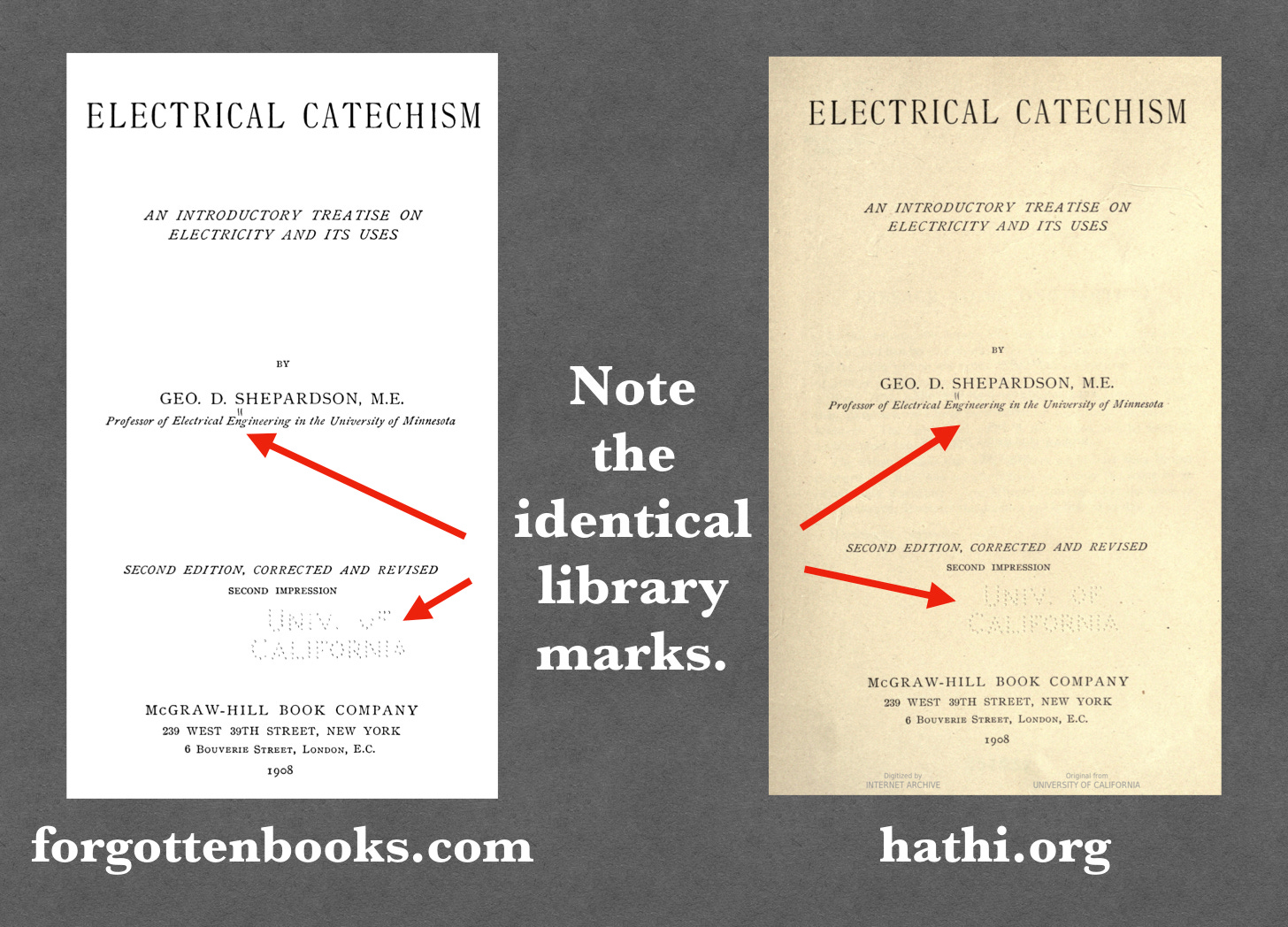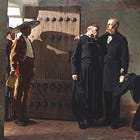
I greatly admire publishers, such as Osprey, that sell e-books in PDF format. The folks who run such shops realize that the goodwill and advertising generated by this practice greatly outweighs any loss of sales that might result from pedestrian peer-to-peer piracy. At the same time, I feel enormous contempt for the digital disciples of Elmer Gantry who offer for sale e-books of types that readers can easily download without forking over their hard-earned oil of palm.
If the sellers of books that have passed into the public domain provided some sort of added value, whether darker, crisper type or high-pixel count illustrations, I would not complain. Indeed, I have been known to pay, and gladly, for high-resolution electronic images of books no longer protected by copyright (and, most especially, the contents of their map pockets). However, the e-books that the scan scammers sell on their sites invariably turn-out to be nothing more than facsimiles of volumes that can be obtained, gratis, from the Internet Archive or the Hathi Trust.
To add insult to injury, the particular incarnations of e-books offered for sale often prove inferior to their cost-free counterparts. In particular, lest they burden their servers with trop de mégabytage, the sellers of PDFs will frequently deprive their wares of features like color and resolution.

Disclaimer: I fully realize that PDF stands for ‘portable document format’ and that, as a result, the phrase ‘PDF format’, like ‘ATM machine’ and ‘PIN number’, reeks of redundancy, perhaps to the point where readers might suspect that I suffer from ‘RAS syndrome’.
For Further Reading:








Could they at least add value? Increase the resolution, do a better scan when pages are missing, or clean up the document?
Nope
Free books and free food.
Irresistible.